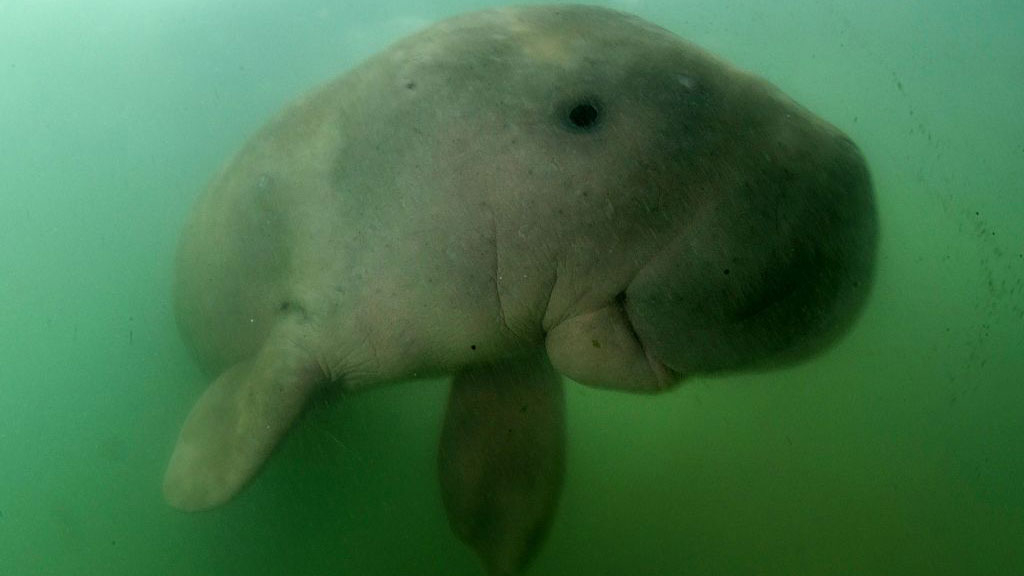

Marium, the dugong /VCG Photo
A sea mammal that became an Internet sensation before dying from swallowing plastic waste will serve as inspiration in a marine conservation project.
The Mariam Project has been named after the eight-month-old baby dugong, a herbivorous sea cow, that perished from complications caused by plastic in her intestines.
Mariam's struggle for survival was followed by millions on webcam as she nuzzled playfully with her rescuers, after washing up on a beach in Krabi in southern Thailand.
"Mariam stayed with us for 110 days," said Dr. Thon Thamrongnawasawat, a marine biologist and deputy dean of Fisheries at Kasetsart University in Bangkok.
"People loved Mariam very much because we had live pictures all the time … they could see her swimming around," he said.
"When she died because of the plastic bags it was a big shock," he added.
The Mariam Project calls for a ban on single-use plastic bags, straws, and cups – as well as styrofoam packaging; re-defining the limits of fishing zones; collecting waste in the ocean by boat, and building clinics to treat endangered species, like dugongs and turtles.
Many of the measures had already been discussed by Thailand's Natural Resources and Environment Ministry, but conservationists believe outrage over Mariam's fate can be a stimulus to accelerate the process. "Mariam's death created a social shock. She is now an icon for the dangers of ocean plastic waste," said Ukrit Sataphumin, head of Thailand's Marine and Coastal Resources Research and Development Institute.
An autopsy showed plastic obstructed Mariam's stomach.
"She taught us how to love and then went away … as if saying please tell everyone to look after us and conserve our species," said veterinarian Nantarika Chansue in a Facebook post.
Mariam is not the only casualty of Thailand's plastic-clogged waters.
A second baby dugong has since died from ingesting plastic and in 2018 a pilot whale perished with 80 plastic bags in its stomach.
Thailand generates about two million tonnes of plastic waste a year with over 50,000 tonnes ending up in the sea. The country is rated the world's sixth-worst ocean polluter.
The Dugong is a placid species harmless to humans. It is estimated there are about 250 in Thai waters. The Mariam Project hopes to increase the population by 50 percent in the next decade.
Dr. Thamrongnawasawat said: "The Mariam Project is a joint effort by the Thai government, the private sector and everybody in Thailand who wants to remember Mariam."
"We have three main aims: we would like to open animal hospitals for dugongs in the Andaman Sea and the Gulf of Thailand."
"We would like to create a network to help every endangered marine species on our shores. And we would like to encourage the Thai government to bring forward the banning of single-use plastic from three years to two years."
He said people were asking "why did Mariam die?"
"The answer is in everyone's hands, parents, children, teachers … we all need to think about new ways to stop plastic pollution," he said.

Copyright © 2018 CGTN. Beijing ICP prepared NO.16065310-3
Copyright © 2018 CGTN. Beijing ICP prepared NO.16065310-3